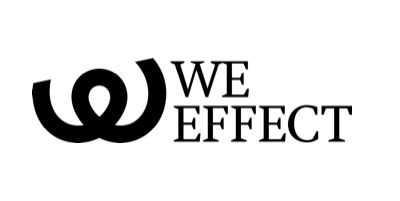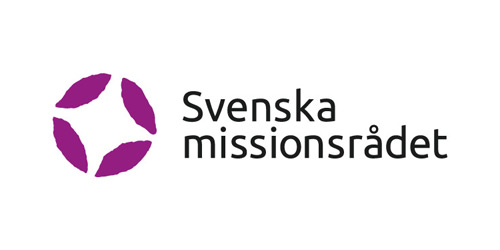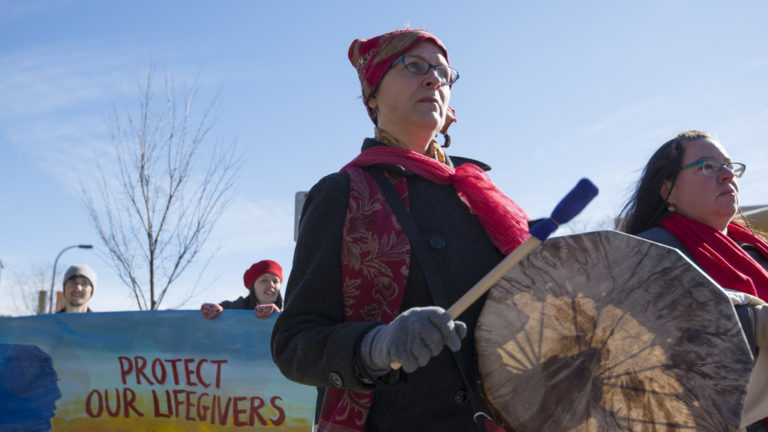
Another missing and murdered indigenous women's march in Minnesota, 2017
Source: Flickr
Av: Louise Gripenberg och Maria Ricksten
In the beginning of October 2018, another march for indigenous rights was held in Montreal, Canada. Hundreds gathered to remind politicians and police officers of the missing and murdered indigenous women. Canada’s long history of ethnic discrimination continues to echo today alongside the government’s failure to address this structural violence.
26 oktober, 2018, Article, English, Magazine
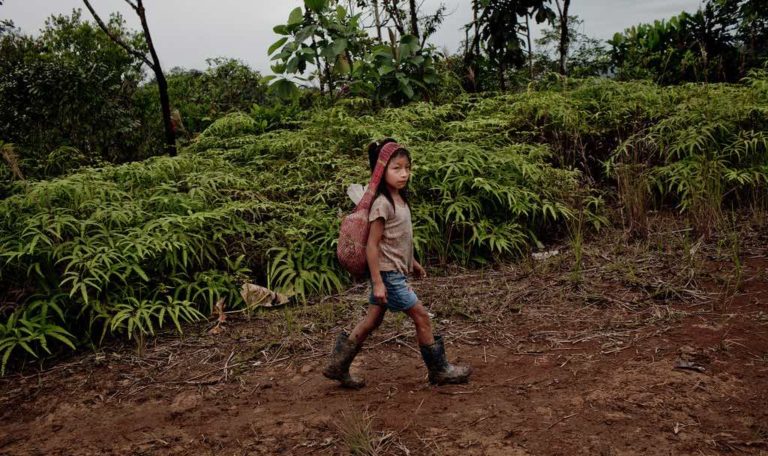
A Kichwa girl carrying her sack tumpline style near the Jondachi river in Ecuador.
Photo: Tomas Munita/CIFOR, Flickr.
Av: Johanna Caminati Engström och Lisa Elamson
In the last decade, progress has been made for the rights of the indigenous people of Ecuador. But despite a favourable legal context and numerous promises made by the government, their rights are still under threat by foreign economic interests.
26 oktober, 2018, Article, English, Magazine
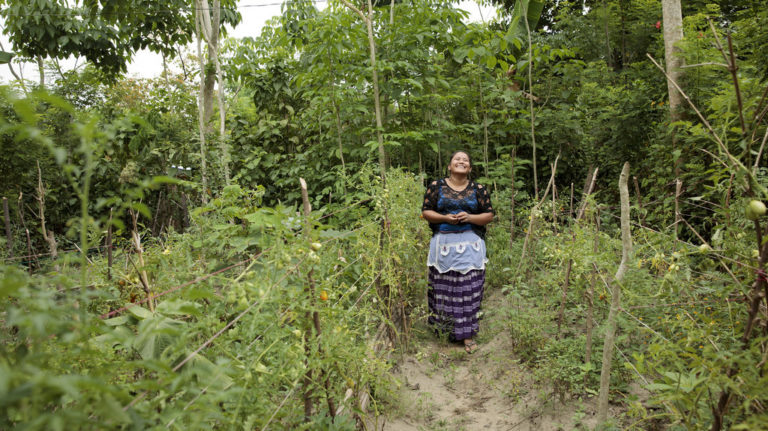
A woman from an agrarian indigenous community in Puente Viejo, Guatemala. Photo: Ryan Brown/UN Women, Flickr.
Av: Carolina Yang
In the field of agriculture where production is the major appeal, a lens from the indigenous perspectives provides opportunities to relieve the unprecedented environmental stress imposed by industrial agriculture. Rather than over-simplified food system, sustainability will be more reachable if native wisdom is applied in celebration of diversity.
26 oktober, 2018, Article, English, Magazine
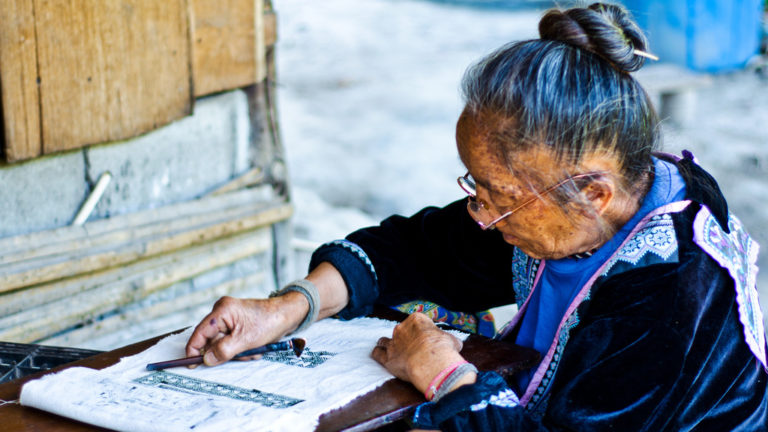
Woman from the Mong Tribe in Chiang Mai, Northern Thailand, drawing designs on a piece of cloth.
Photo: Justin Vidamo, Flickr.
Av: Alexandra Håkansson och Linda Sebbas
For the last decades UNESCO has been criticised for not tending to indigenous rights. The World Heritage convention has, despite its aim, resulted in devastating consequences for indigenous peoples. Signs of change in their work can be detected, but will it be enough?
26 oktober, 2018, Article, English, Magazine
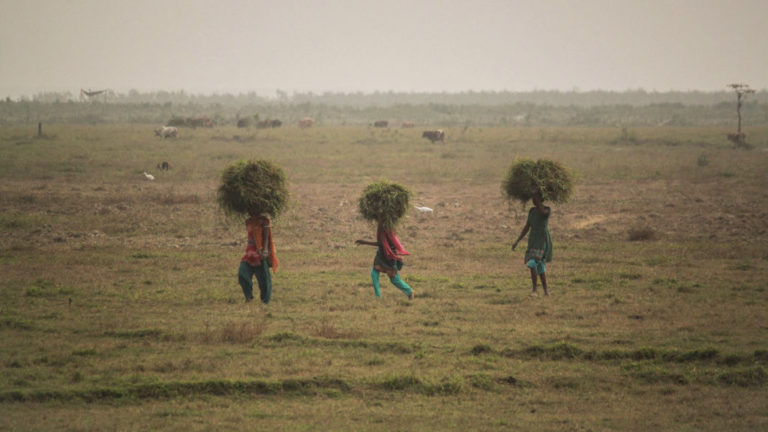
Indigenous women collecting grass for their cattle in Kathonibari, Kaziranga National Park.
Photo: Eleonora Fanari & Pranab Doley.
Av: Hanna Geschewski och Vittorio Capici
The loss of Indigenous peoples’ natural resource base is often associated with rainforest clearing, dam projects and the mining industry. But it is not always the infamous multinational corporations that drive native peoples from their lands. Two examples from India and Alaska illustrate how public conservation policies and inter-indigenous conflicts threaten communities and identities.
26 oktober, 2018, Article, English, Magazine
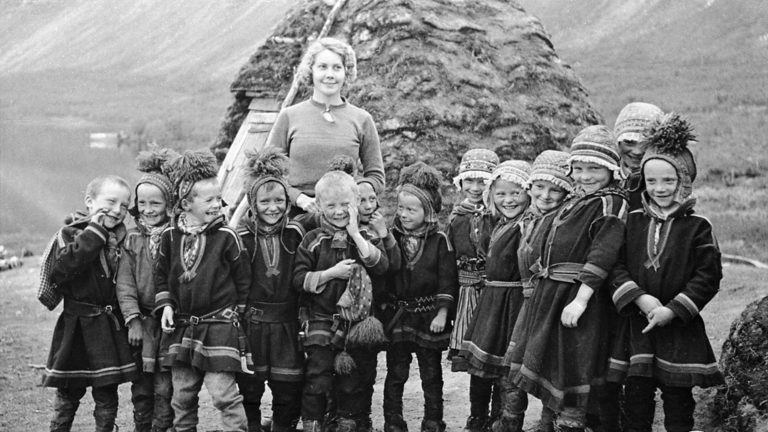
A Sami residential school in Vaisaluokta, Lapland.
Photo: T. Dahllöf. Almquist & Cöster/Swedish National Heritage Board, Flickr
Av: Siobhán Coskeran och Tessa Stockburger
The rights of indigenous peoples are now recognised by the international community. But when it comes to education, the legacy of past discrimination has not been tackled.
26 oktober, 2018, Chronicle, English, FUF Lund, Magazine
Av: Elin Fredriksson
26th of April, we had the pleasure to listen to Maja Sager, PhD and associate senior lecturer at the Department of Gender Studies in Lund, in a FUF-seminar in Lund. She talked about feminist perspectives on migration, which is her research focus. The key question of the seminar was: Why is it important to analyse […]
Läs mer »
4 juni, 2018, Article, English, FUF Lund, Magazine
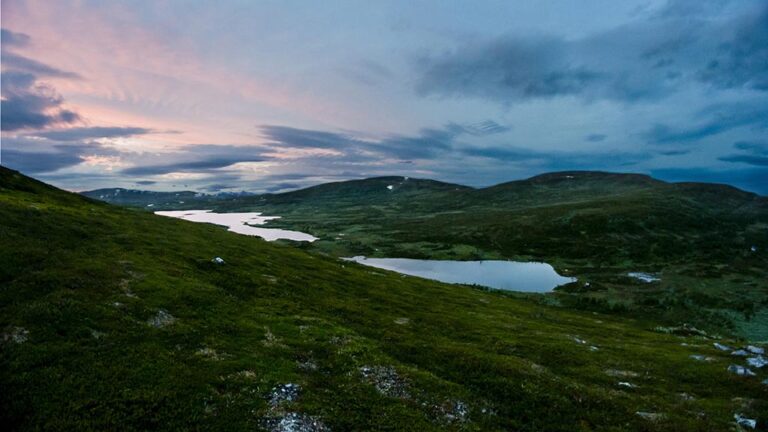
Sámiland. Photo: Alexander Cahlenstein, Flickr
Av: Brita Bamert
Sámieatnan duoddariid, dáid sámi mánáid ruovttu galbma geađge guorba guovlu sámi mánáid ruoktu Sámiland’s wide expanses home to Sámi children cold barren rocky realm home of Sámi children These are the first lines of the Sámi Artist Sofia Jannok’s song, in the English translation named Wide Open Tundra of the Sámiland. The Sámi people represent the indigenous population […]
Läs mer »
4 juni, 2018, Article, English, FUF Lund, Magazine
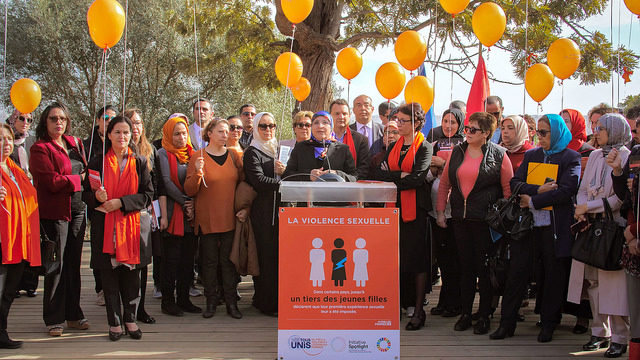
UN Women and partners led a global “Orange the World” campaign to end violence against women and girls last year, which sparked activist movements around the world, like this group composed of civil society, UN and general public members in Rabbat, Morocco, to speak up about violence against women. Photo: Younes El Moumine/UN Women
Av: Lou Darriet
Women throughout history have faced sexual violence in conflict environments, but the recent allegations against humanitarian workers’ sexual misconduct might be the beginning of a shift towards fighting gender-based violence worldwide more proactively. Development and humanitarian actors worldwide are stepping up to ensure the safety and security of women and girls in conflict and post […]
Läs mer »
14 april, 2018, Article, English, FUF Lund, Magazine
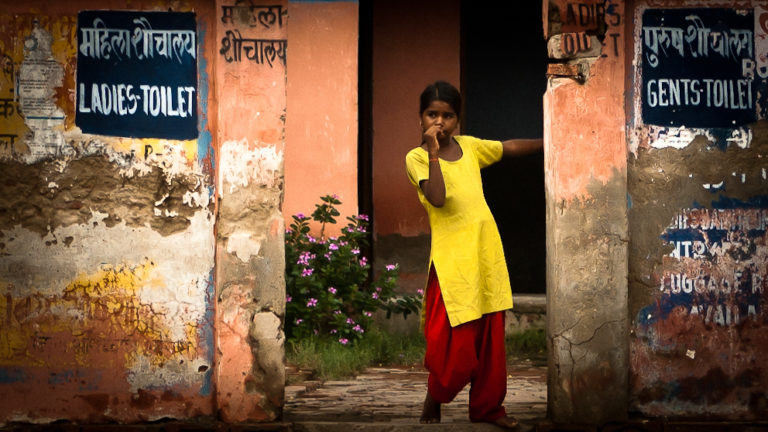
Access to clean, protected and gender-separated toilets would encourage girls to go to school, also when they are menstruating. Fatehpur Sikri, India. Photo: Flickr, Ignas Kukenys
Av: Elin Fredriksson
When the train from Delhi sets off to the north of India, it passes by long fields at the outskirts of the capital. In the early morning, the passengers of the train can observe how dozens of men and women walk around in the field and eventually bend down to defecate. It is the daily […]
Läs mer »
1 april, 2018, English, FUF Lund, Magazine, Reportage










